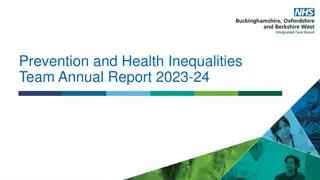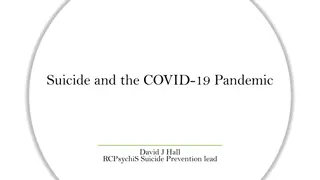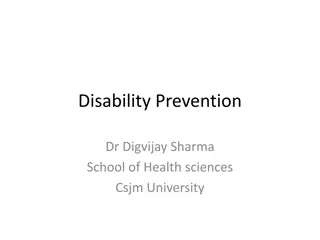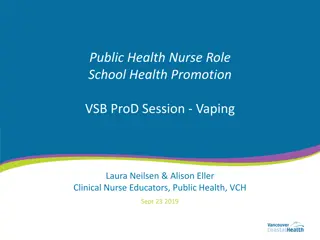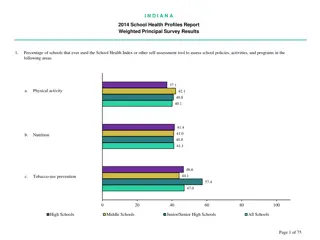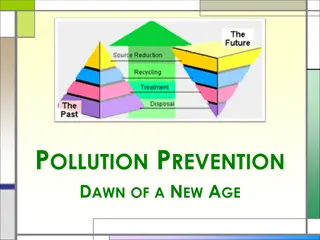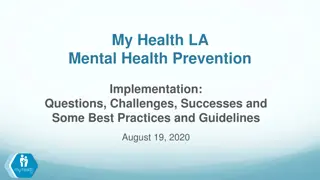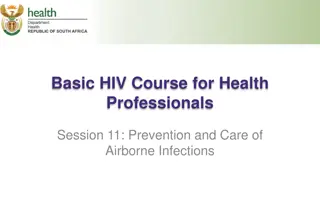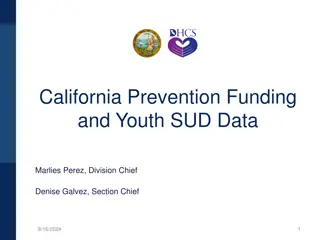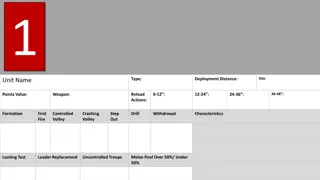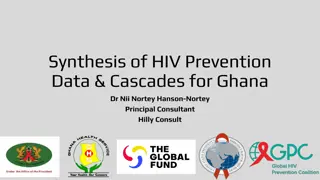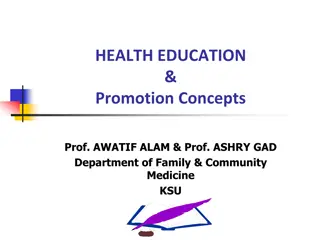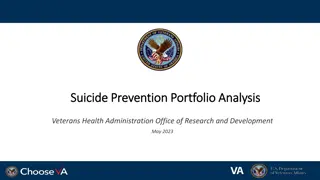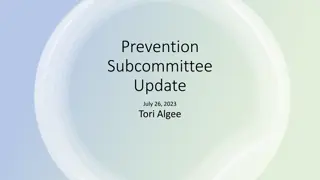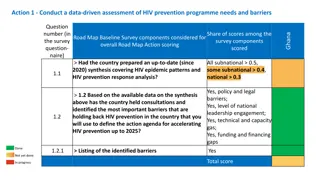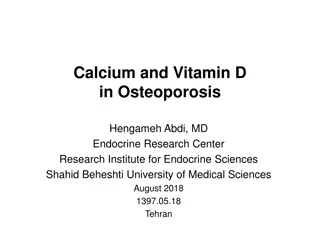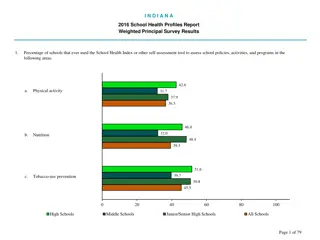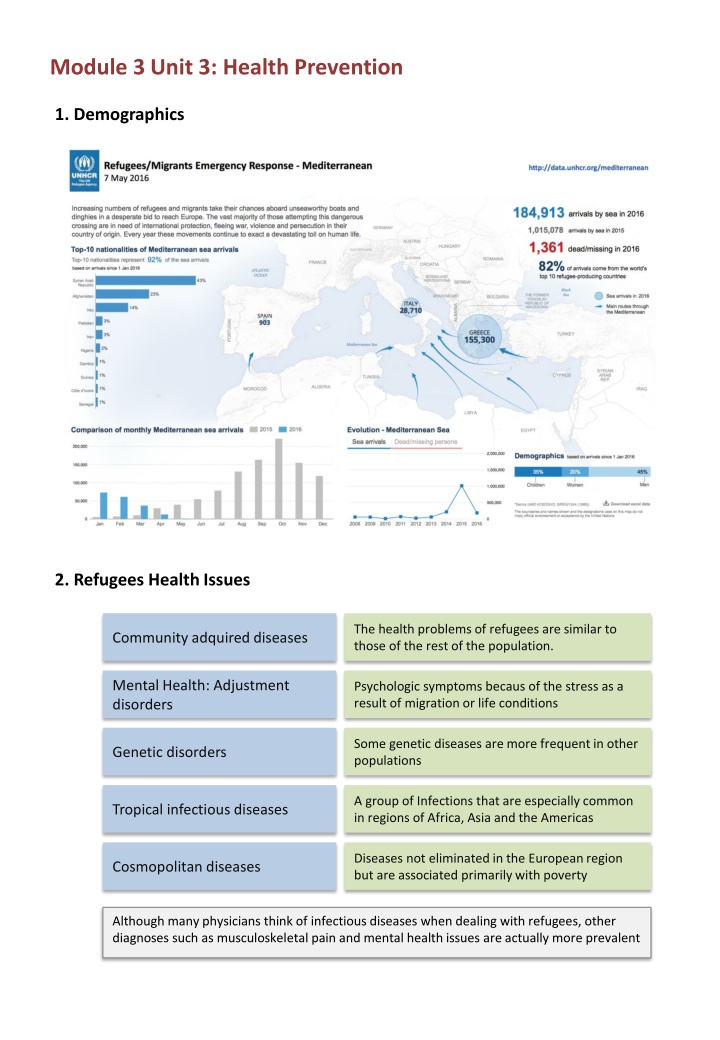
Refugee Health Issues and Assessment Protocols
Learn about the health problems commonly faced by refugees, including infectious diseases and mental health issues resulting from migration stress. Discover the importance of early access to primary healthcare for refugees, along with protocols for assessing and addressing their medical needs.
Download Presentation

Please find below an Image/Link to download the presentation.
The content on the website is provided AS IS for your information and personal use only. It may not be sold, licensed, or shared on other websites without obtaining consent from the author. If you encounter any issues during the download, it is possible that the publisher has removed the file from their server.
You are allowed to download the files provided on this website for personal or commercial use, subject to the condition that they are used lawfully. All files are the property of their respective owners.
The content on the website is provided AS IS for your information and personal use only. It may not be sold, licensed, or shared on other websites without obtaining consent from the author.
E N D
Presentation Transcript
Module 3 Unit 3: Health Prevention 1. Demographics 2. Refugees Health Issues The health problems of refugees are similar to those of the rest of the population. Community adquired diseases Mental Health: Adjustment disorders Psychologic symptoms becaus of the stress as a result of migration or life conditions Some genetic diseases are more frequent in other populations Genetic disorders A group of Infections that are especially common in regions of Africa, Asia and the Americas Tropical infectious diseases Diseases not eliminated in the European region but are associated primarily with poverty Cosmopolitan diseases Although many physicians think of infectious diseases when dealing with refugees, other diagnoses such as musculoskeletal pain and mental health issues are actually more prevalent
3. Refugee seeking healthcare Adequate access to Primary Health Care should be established as early as possible Refugee who consults a physician (initial contact) Priorizing problems (patient-centered approach) 1 Address reason for visiting and schedule pending problems 2 Protocol for the newly arriving refugee Anamnesis: social risks assessment health risks assessment inmunization schedule Physical examination and screening protocol Is it possible to solve the problem in one consultation? YES NO Assess selected issues and plan intervention over pending problems Scheduled consultation Refugee Health Assessment Protocol Anamnesis Physical examination Screening protocol
4. Summary checklist for the medical examination for newly arriving refugees Anamnesis Physical examination Country of origin and migratory history Identify communication issues or cultural differences Dwelling conditions Social history: social networks and vulnerability Asylum seeker status, and future perspectives in receiving country Psychological risks Chronic diseases and allergies Previous health investigations or pre- departure medical examination Current medications Immunizations given Nutritional status Skin and mucosa (oral mucosa, throat, eyes) Lymph nodes Lungs and heart Abdomen (organomegalies or masses) Extremities External genitalia Basic psychological exploration Screening protocol General laboratory testing (blood count, glucose and serum chemistries, urinalysis, liver function tests) Metabolopaties test in children under the age of 6 months Disease-specific testing (depending on country of origin) Serologies for hepatitis B, hepatitis C and varicella HIV (informed consent) and syphilis Intestinal and tissue invasive parasites Malaria Tuberculosis Don t forget: Build a patient-centered relationship (call patient for his/her name, ask for preferences ) To know social and cultural context Health education intervention (dental care, exercise, nutrition counselling, assess for smoking and alcohol misuse, etc) To ask for contraceptive needs Remain alert for posible social needs, to refer to local social services Offer the general population screening programmes (breast screening, cervical cancer screening) Individualize the intervention depending on circumstances, don t forget assessing patient health concerns first Weekers J, Siem H. Is compulsory overseas medical screening of migrants justifiable? Public Health Rep. 1997 Sep-Oct;112(5):396-402.
5. Screening Protocol for Refugees (1/2) Clinical assessment is controversial. Be alert for signs and symptoms of post-traumatic disorder, depression, etc) Mental health screening Infectous diseases Adults and children where the seroprevalence is moderate or high (i.e. 2% HBsAg) Hepatitis B (HBsAg, anti-HBc, anti-HBs) Vaccinate those who are susceptible (negative for all three markers) All refugees from regions with prevalence of disease 3% Hepatitis C Screen with informed consent, all adolescents and adults from countries where HIV prevalence is 1% HIV Consider syphilis test for all persons 15 years old and for some children (risk criteria) Strongyloides (serologic test): Screen refugees newly arriving from Southeast Asia and Africa Intestinal parasites Stools for ova and parasites: routine assesment for those who are symptomatic Schistosoma (serologic test): Screen refugees newly arriving from Africa Treat if positive: ivermectin (Strongyloides) or praziquantel (Schistosoma) Do not conduct routine screeing. Malaria Suspect malaria if fever is present in any traveler coming from sub-Saharian Africa Screen children, adolescents < 20 years of age and refugees between 20 and 50 years of age from countries with a high incidence of tuberculosis Tuberculosis If test results are positive, rule out active tuberculosis and then treat latent tuberculosis infection.
5. Screening Protocol for Refugees (2/2) Chronic and noncommunicable diseases In addition to the other special health considerations, refugees have the same common chronic conditions as non-refugee patients Screen for chronic diseases, such as diabetes, hypertension, cholesterol, colorectal cancer etc. as appropriate based on age and risk factors as per usual practice. Screen refugees > 35 years of age from ethnic groups at high risk for type 2 diabetes (those from South Asia, Latin America and Africa) with fasting blood glucose Type 2 diabetes mellitus The USPSTF recommends screening for abnormal blood glucose as part of cardiovascular risk assessment in adults aged 40 to 70 years who are overweight or obese Screen refugee women of reproductive age, and children aged one to four years for iron-deficiency anemia (with hemoglobin) Iron-deficiency anemia If anemia is present, investigate and recommend iron supplementation if appropriate Screen all immigrants for dental pain. Screen all immigrant children and adults for obvious dental caries and oral disease Dental disease Refer to a dentist or oral health specialist if necessary. Vision health Perform age-appropriate screening for visual impairment Screen sexually active women for cervical abnormalities by Papanicolaou (Pap) test Cervical citology Breast cancer screening as appropiate for age. Lower priority for the first visit Lower priority for the fisrt visit. Information, rapport and access to a female practitioner can improve uptake of screening and follow- up. Provide culturally sensitive, patient-centred contraceptive counselling (giving women their method of choice, having contraception on site and fostering a good interpersonal relationship). Contraception
6. Adult Immunizations Schedule: priorities Most countries in Europe tend to recommend the same kind of vaccines for adults, but there could be some differencies (schedules, risk groups, funding and coverage, etc). Search for vaccunation recommendatios in your country. Recommended adult inmmunization schedule for refugees Vaccine 14-17 years 18-25 years 26-49 years 60-64 years 65 years 1 dose anually Influenza 1 dose annually depending on indication Complete the recommended five dose schedule if vaccination status unknown or incomplete Tetanus, diphteria (Td) 1 dose Complete Pertusis (Tdpa) 1 dose Tdap each pregnancy (third trimester) Measles, mumps, rubella (MMR) <35 years: 1 or 2 doses depending if vaccination is incomplete or unknown Varicella Persons with risk factor and seronegative. 2 doses Hepatitis B 3 doses (0-1-6 months) Polio* 3 doses (IPV, 0-1-12 months) Refugees, asylum-seekers and migrants should be vaccinated without unnecessary delay according to the immunization schedule of the country in which they intend to. In adults <35 years, measles, mumps and rubella (MMR) should be priorities. * Assess the vaccination status of refugees and migrants from polio-affected countries* at the time of entry into the EU/EEA (Cameroon, Equatorial Guinea, Pakistan, Syrian Arabic Republic, Afghanistan, Ethiopia, Iraq, Israel, Somalia and Nigeria). People not vaccinated against polio or other diseases should be offered age- appropriate vaccinations and in accordance with the host country s vaccination schedule. WHO-UNHCR-UNICEF joint technical guidance: general principles of vaccination of refugees, asylum- seekers and migrants in the WHO European Region. 23 nov. 2015. Web page: euro.who.int/ CDC Adult Immunization Schedule United States 2016. Web page: cdc.gov/vaccines/schedules/hcp/adult.html
7. About Health Promotion Health promotion is the process of enabling people to increase control over, and to improve, their health. It moves beyond a focus on individual behaviour towards a wide range of social and environmental interventions. The 8th Global Conference on Health Promotion was held in Helsinki, Finland from 10- 14 June 2013. We call on governments to fulfil their obligations to their peoples health and well-being by taking the following actions: Commit to health and health equity as a political priority by adopting the principles of Health in All Policies and taking action on the social determinants of health. Ensure effective structures, processes and resources that enable implementation of the Health in All Policies approach across governments at all levels and between governments. Strengthen the capacity of Ministries of Health to engage other sectors of government through leadership, partnership, advocacy and mediation to achieve improved health outcomes. Build institutional capacity and skills that enable the implementation of Health in All Policies and provide evidence on the determinants of health and inequity and on effective responses. Adopt transparent audit and accountability mechanisms for health and equity impacts that build trust across government and between governments and their people. Establish conflict of interest measures that include effective safeguards to protect policies from distortion by commercial and vested interests and influence. Include communities, social movements and civil society in the development, implementation and monitoring of Health in All Policies, building health literacy in the population. The Helsinki statement on Health in All Policies The 8th Global Conference on Health Promotion, Helsinki, Finland, 10-14 June 2013. The Helsinki statement on Health in All Policies

